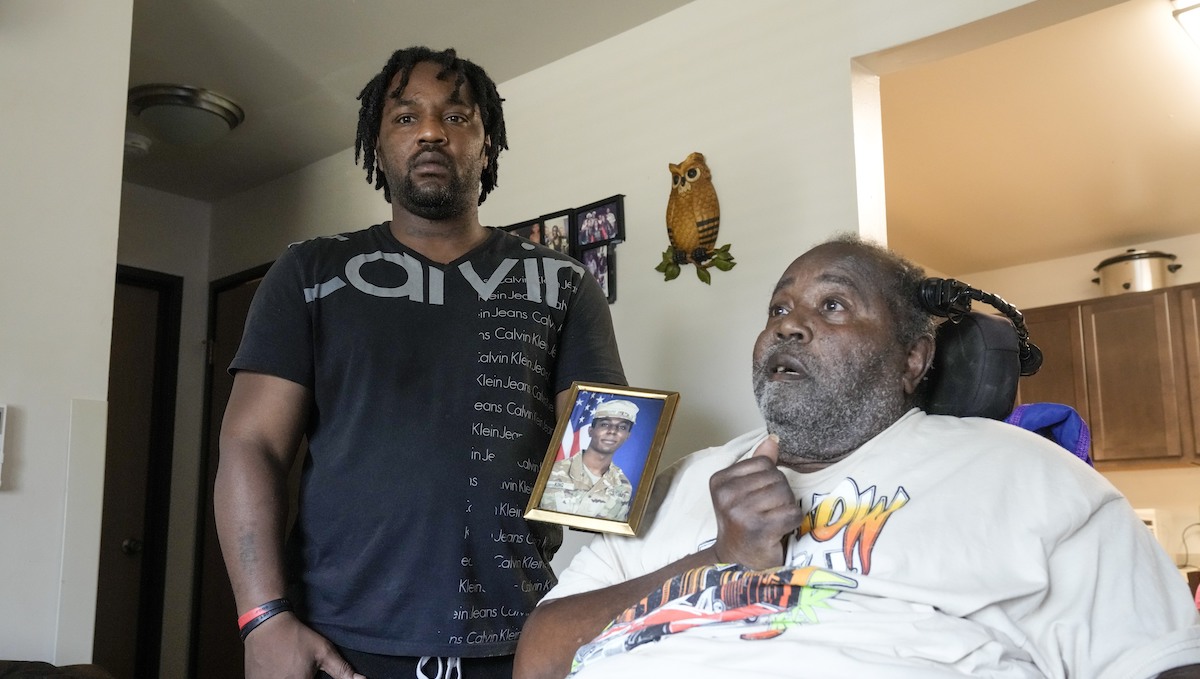North Korea asserted Wednesday that a U.S. soldier who bolted into the North across the heavily armed Korean border last month did so after being disillusioned with the inequality of American society and racial discrimination in its Army.
It was North Korea's first official confirmation of detention of Private 2nd Class Travis King, who entered the North while on a tour of a Korean border village on July 18. He became the first American detained in the North in nearly five years.
The North Korean official news agency, KCNA, said King told investigators that he had decided to enter North Korea because he “harbored ill feelings against inhuman mistreatment and racial discrimination within the U.S. Army.”
It said King also expressed his willingness to seek refuge in North Korea or a third country, saying he “was disillusioned at the unequal American society.”
KCNA is a propaganda arm of North Korea’s dictatorship and often releases statements and articles carefully calibrated to reflect the government’s official line that the United States is an evil adversary.
It's virtually impossible to confirm the authenticity of King's comments reported in North Korea's state media. North Korea has coerced statements from captives before.
The United States, South Korea and others have accused North Korea of using foreign detainees to wrest diplomatic concessions. Some foreign detainees have said after their release that their declarations of guilt while in North Korean custody were made under coercion.
Some analysts earlier said North Korea might try to use King’s case to wrest concessions from Washington, such as tying his release to the U.S. cutting back its military activities with South Korea.
King’s border crossing came amid heightened animosities on the Korean Peninsula. North Korea has conducted more than 100 weapons tests since the beginning of last year, prompting the U.S. to expand its military drills with South Korea. Next Monday, the allies are to begin major annual drills, which North Korea views as an invasion rehearsal.
Get a weekly recap of the latest San Francisco Bay Area housing news. Sign up for NBC Bay Area’s Housing Deconstructed newsletter.
The KCNA dispatch on King came hours after North Korea slammed U.S.-led plans for an open U.N. Security Council meeting on its human rights record as “despicable” and only aimed at achieving Washington’s geopolitical ambitions.
North Korean Vice Foreign Minister Kim Son Gyong said the American human rights issue must be dealt at the U.N. council, calling the United States "the anti-people empire of evils, totally depraved due to all sorts of social evils.” Kim accused the U.S. of fostering racial discrimination, gun-related crimes, child maltreatment and forced labor.
North Korea said an investigation into King would continue.
King, 23, was supposed to be heading to Fort Bliss, Texas, following his release from prison in South Korea on an assault conviction. He was among about 28,000 U.S. troops stationed in South Korea as deterrence against potential aggression from North Korea.
According to U.S. officials, King — who chose to serve his time at a labor camp rather than pay the nearly $4,000 fine — has been declared AWOL. The punishment for being away without leave can include confinement in the brig, forfeiture of pay or dishonorable discharge and it is largely based on how long they were away and whether they were apprehended or returned on their own.
The U.S. and North Korea, which fought during the 1950-53 Korean War, are still technically at war since that conflict ended in a truce, not a peace treaty, and have no diplomatic ties. Sweden provided consular services for Americans in past cases, but Swedish diplomatic staff reportedly haven’t returned since North Korea ordered foreigners to leave the country at the start of the COVID-19 pandemic.
North Korea has previously held a number of Americans who were arrested for anti-state, espionage and other charges. But no other Americans were known to be detained since North Korea expelled American Bruce Byron Lowrance in 2018. During the Cold War, a small number of U.S. soldiers who fled to North Korea later appeared in North Korean propaganda films.
U.S. officials have expressed concern about his well-being and said previously that North Korea ignored requests for information about him.



